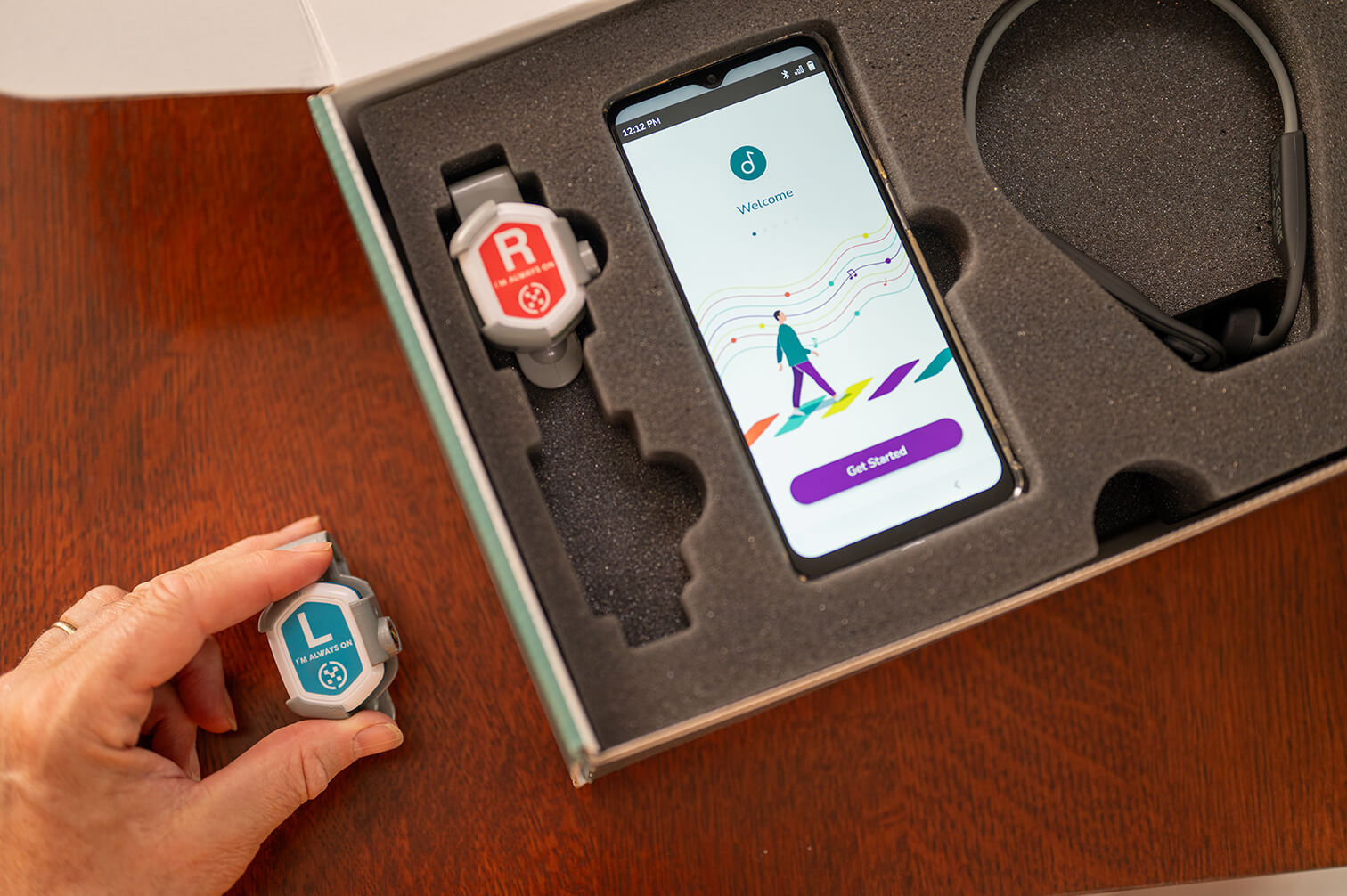For the first article in the ‘Music for Health & Wellbeing’ series, UMusicLift sat down with Brian Harris, CEO & Founder of Medrhythms, to hear their story and plans for the future.
Tell us about MedRhythms.
MedRhythms was founded with a mission to positively impact the lives of the millions of people living with neurologic injury and disease.
MedRhythms is a medical device company based in Portland, Maine that is building the next-generation of medical devices based on the neuroscience of music to improve mobility in neurologic conditions.
InTandem, the company’s flagship product, is an FDA-authorized, prescription-only neurorehabilitation system for home use to improve walking and ambulation in adults with chronic stroke. In the United States alone, an estimated 3.8 million Americans are living with a chronic stroke-related gait impairment. InTandem has been studied in multiple successful clinical trials, and received FDA breakthrough-device-designation in 2020.
- The InTandem device.
How did you come up with the idea? What motivated you to start the company?
The inception of MedRhythms traced back to my work as a neurologic music therapist at Spaulding Rehabilitation Hospital Boston, an affiliate of Harvard Medical School, where I was a clinician treating patients with live music interventions, helping them to improve walking. One such intervention is called rhythmic auditory stimulation and is based on how the rhythm of music can activate parts of the brain that control walking. Witnessing firsthand the profound impact this treatment had on improving patients’ walking abilities, I was driven by a mission to extend its reach beyond the hospital walls. The realization that individuals lost access to this life-altering treatment upon leaving the facility impacted me deeply. It highlighted a significant gap in access that I felt compelled to bridge. Motivated by the desire to democratize access to this scientifically backed treatment, I founded MedRhythms.

